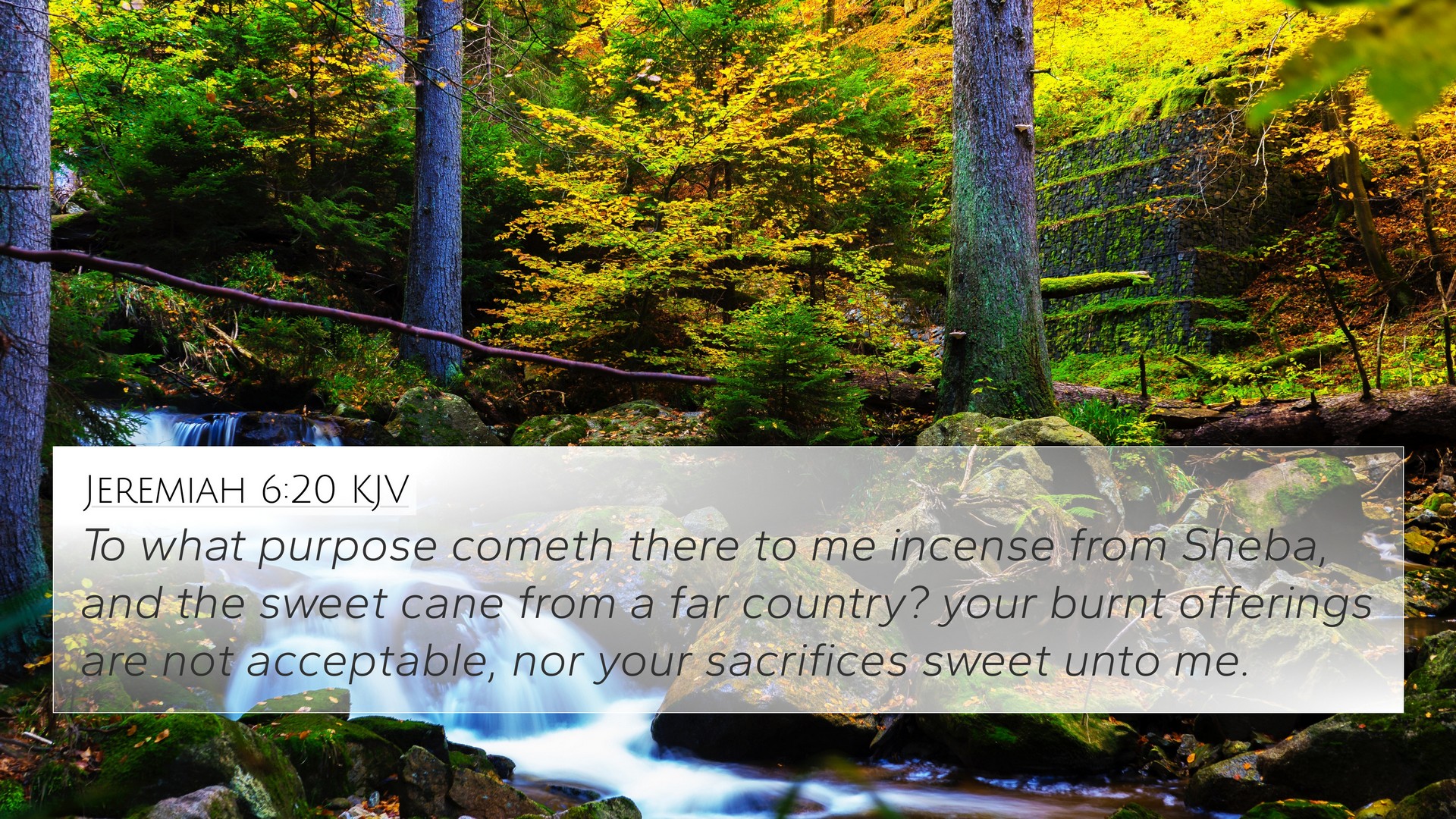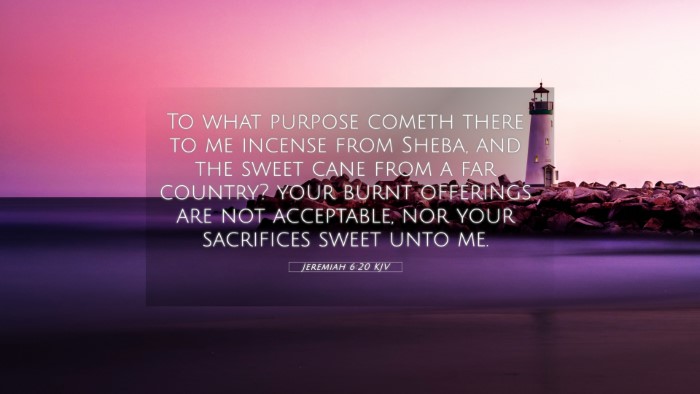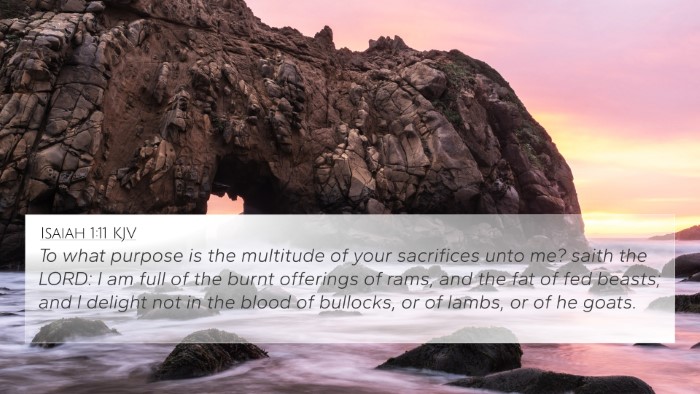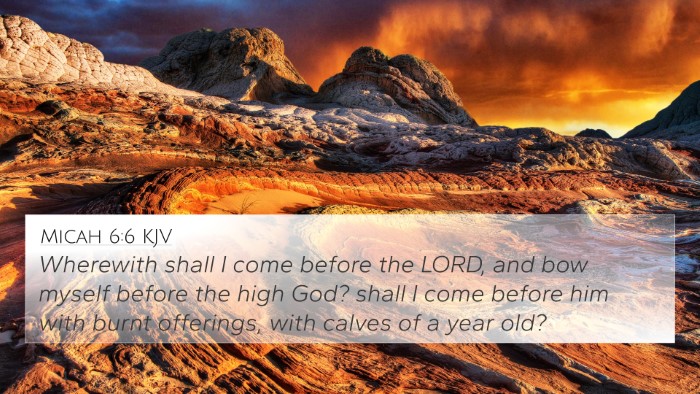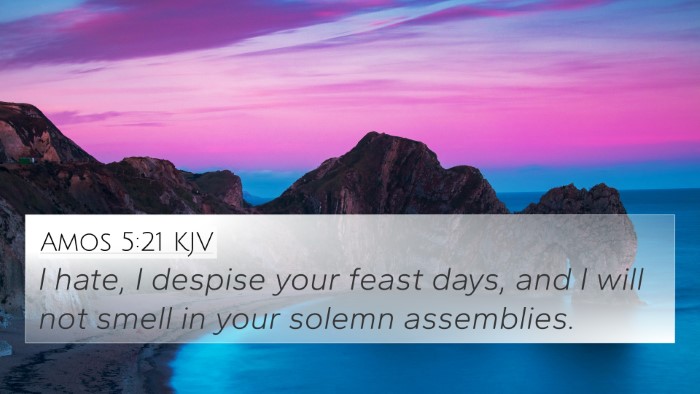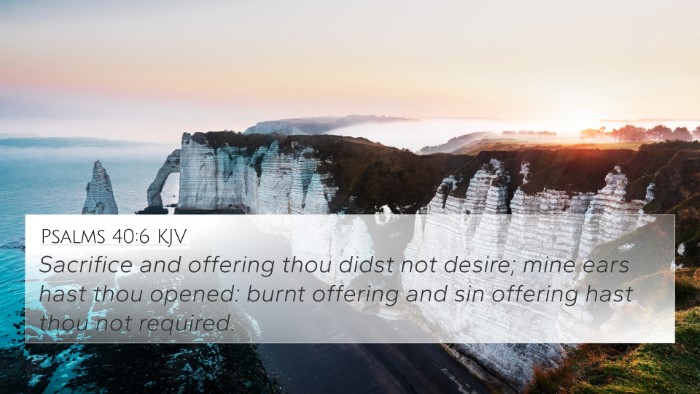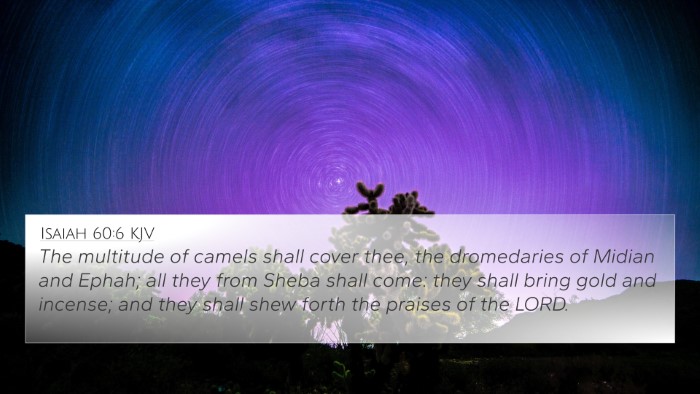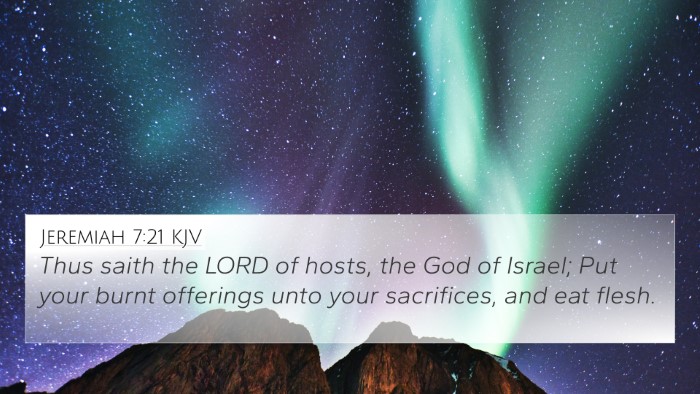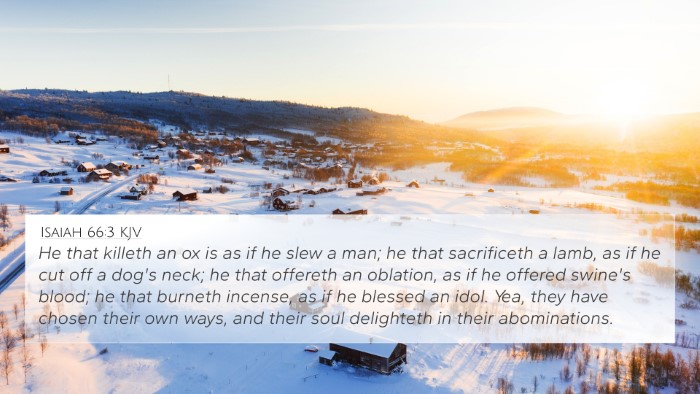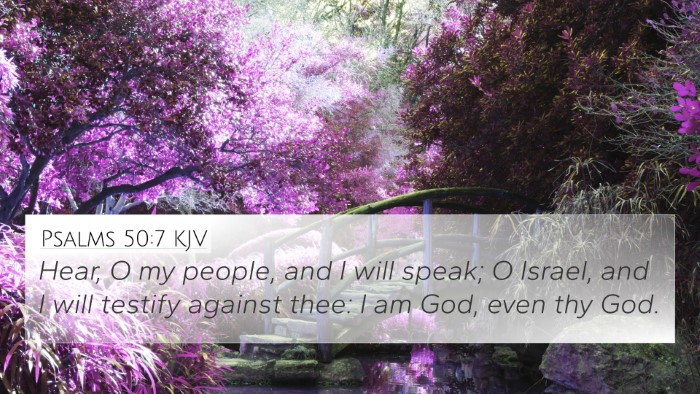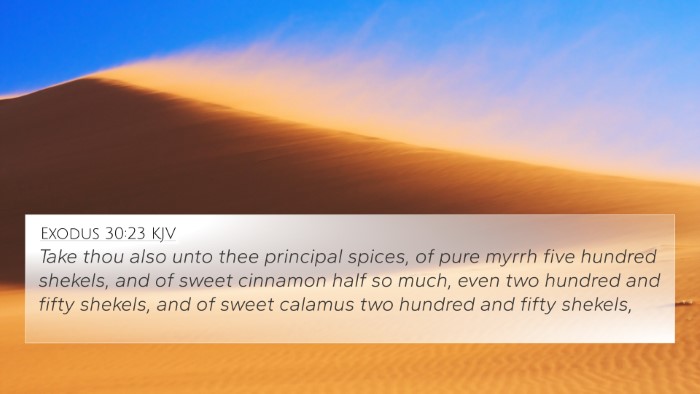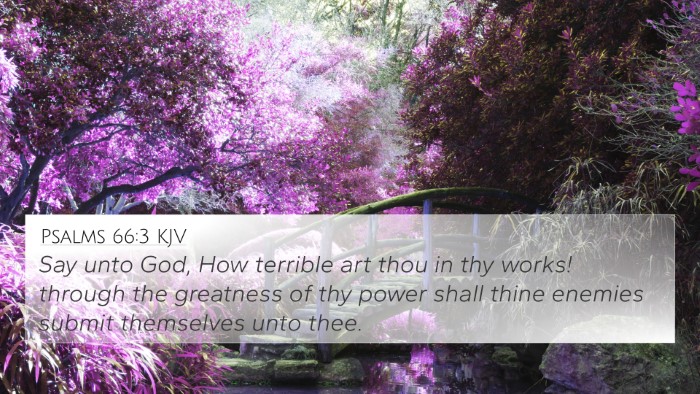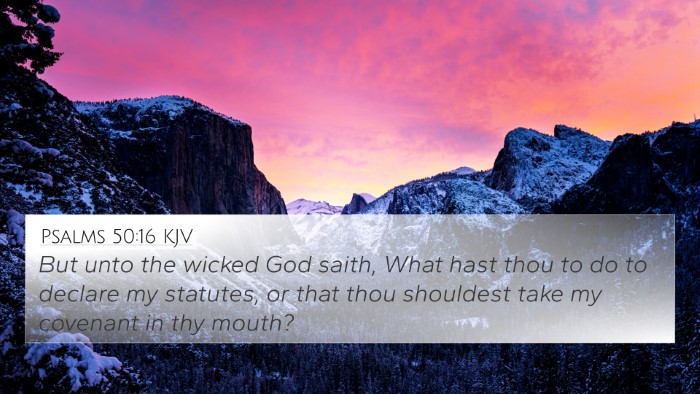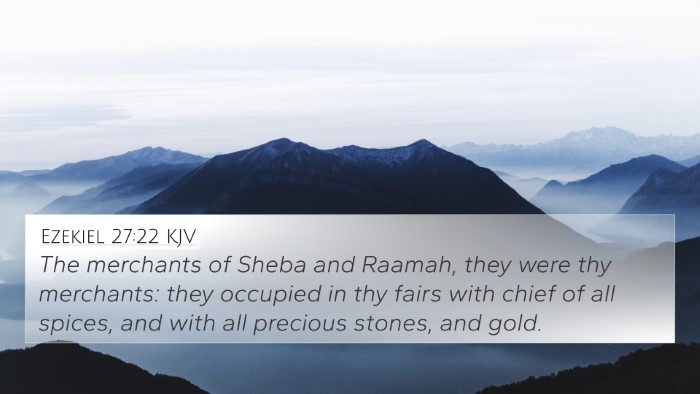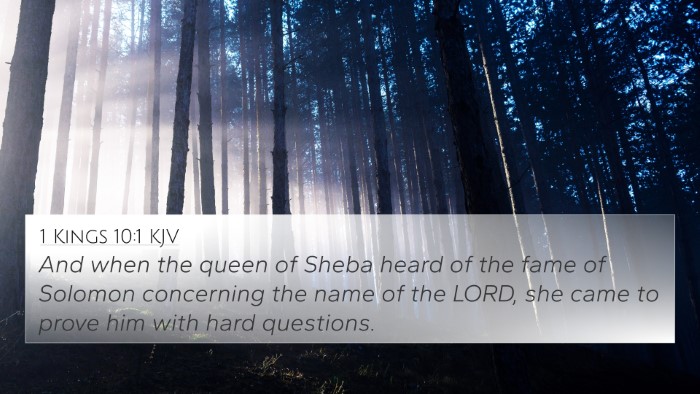Understanding Jeremiah 6:20
Jeremiah 6:20 states:
"To what purpose cometh there to me incense from Sheba, and the sweet cane from a far country? your burnt offerings are not acceptable, nor your sacrifices sweet unto me."
This verse encompasses a profound critique of empty religious practices and highlights the disconnect between outward rituals and genuine faith. It reveals how God values sincerity over mere ceremonial observance.
Significance of the Verse
The prophet Jeremiah conveys the message that the people of Judah have become so engrossed in their rituals that they have lost sight of the true purpose behind them. They attempt to offer incense and sacrifices, but these offerings, though richly presented, lack the genuine devotion that is essential for them to be pleasing to God.
Commentary Insights
- Matthew Henry: Notes that the incense and sacrifices from Sheba signify the extravagant offerings of the people, yet these do not reach the heart of God because they are not accompanied by true repentance and faith.
- Albert Barnes: Emphasizes that God is more concerned with the heart and mind of the worshiper than the external acts of worship. He warns against rituals that lack true meaning and engagement with God.
- Adam Clarke: Points out that the mention of Sheba highlights the futility of seeking to win God's favor through distant offerings, over the integrity of one’s relationship with Him.
Bible Verse Cross-References
- Isaiah 1:11-13 - Critique of meaningless sacrifices.
- Hosea 6:6 - God desires mercy, not sacrifice.
- Micah 6:6-8 - The Lord's requirement of justice and humility.
- Matthew 5:23-24 - Importance of reconciling before bringing offerings to God.
- John 4:24 - Worshiping in spirit and truth is essential.
- James 2:26 - Faith without works is dead, underscoring actions following faith.
- 1 Samuel 15:22 - Obedience is better than sacrifices.
Thematic Connections
This verse and its surrounding context provide rich material for a Bible cross-reference guide. By linking these scriptures, one can explore themes such as:
- The futility of empty worship: Connecting Jeremiah 6:20 with Isaiah 1:11-13 enhances understanding of God's disdain for insincere offerings.
- True worship versus ritual: Comparisons with John 4:24 allow exploration of the qualities of acceptable worship.
- The heart of worship: Examining Jeremiah in light of Hosea 6:6 leads to deeper insights into God's desires.
Tools for Deepening Understanding
Utilizing tools for Bible cross-referencing can significantly enrich your study of Jeremiah 6:20. Here are some suggested methods:
- Bible concordance: Use a concordance to look up key terms like "sacrifice" or "offering" and discover related scriptures.
- Cross-reference Bible study: Identify how this verse connects to others to build a thematic understanding.
- Inter-Biblical dialogue: Engage with the connections between Old Testament practices and New Testament revelations.
Practical Application
Understanding Jeremiah 6:20 today can lead individuals to reflect on their own worship practices:
- Are my acts of worship sincere and aligned with my faith?
- Do my prayers and offerings come from a heart seeking true communion with God?
- How can I ensure that my worship is both heartfelt and acceptable in God’s sight?
Conclusion
Jeremiah 6:20 serves as a timeless admonition against the danger of doing things out of habit rather than genuine faith. Through careful comparative Bible verse analysis, believers can seek to cultivate a faith that resonates with authenticity, ensuring that their worship aligns with God’s desires.
Further Study
To delve deeper, consider collecting relevant Bible verses that relate to Jeremiah 6:20 and examining the links between the Prophets and Apostolic teachings. This study will help identify how messages of authenticity in worship transcend both Testaments, offering a holistic view of a faithful life in Christ.
